London Torch Song Star Matthew Needham on Making Harvey Fierstein's Iconic Protagonist His Own
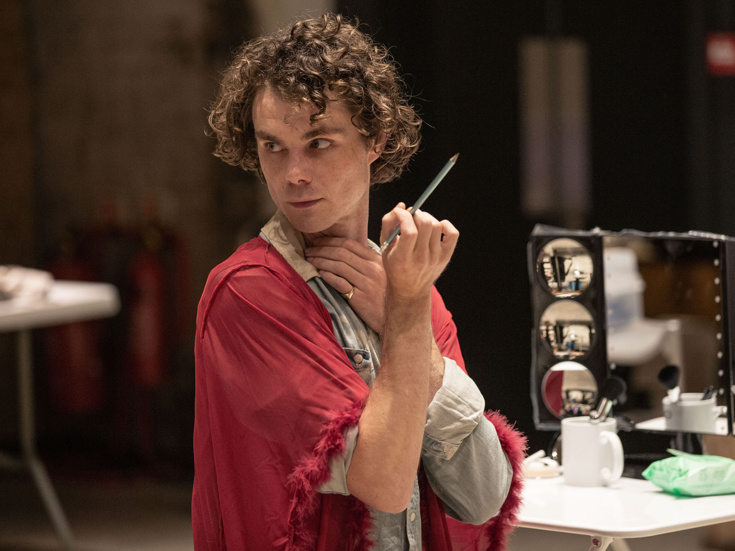
(Photo: Mark Senior)
Matthew Needham has cut quite a swath through the American repertoire of late, between the Olivier Award-winning revival of Tennessee Williams' Summer and Smoke and the U.S.-set stage adaptation of The Twilight Zone. But neither of those plays offers quite the opportunity that comes with stepping into Harvey Fierstein's mighty shoes in the new London production of Torch Song, with Needham playing the lovelorn drag queen, Arnold, originated onstage and screen by its author, Fierstein, nearly 40 years ago. Broadway.com caught the actor in the run-up to the August 22 start of previews at the newly built Turbine Theatre to discuss what it's like to unleash his own Virginia Ham (the name given to Arnold's drag alter ego).
As an English actor, did you ever dream that you might one day play as iconic an American role as Arnold Beckoff?
"No" is the honest answer but I never anticipate, really. This was just one of those ones that came through and looked interesting: some things are more interesting than others and Arnold Beckoff in Torch Song was especially interesting.
Were you in any way daunted by the legacy of this play and of Fierstein as its Tony-winning actor-author?
I don't get nervous playing parts that others have done, though it's slightly different when it's Harvey, who is a complete hero of mine for many reasons and not just this play. This play remains so synonymous with him as a personality and with the affection that people have when they think of him. On the other hand, if no one plays [Arnold] besides Harvey, then the play dies.
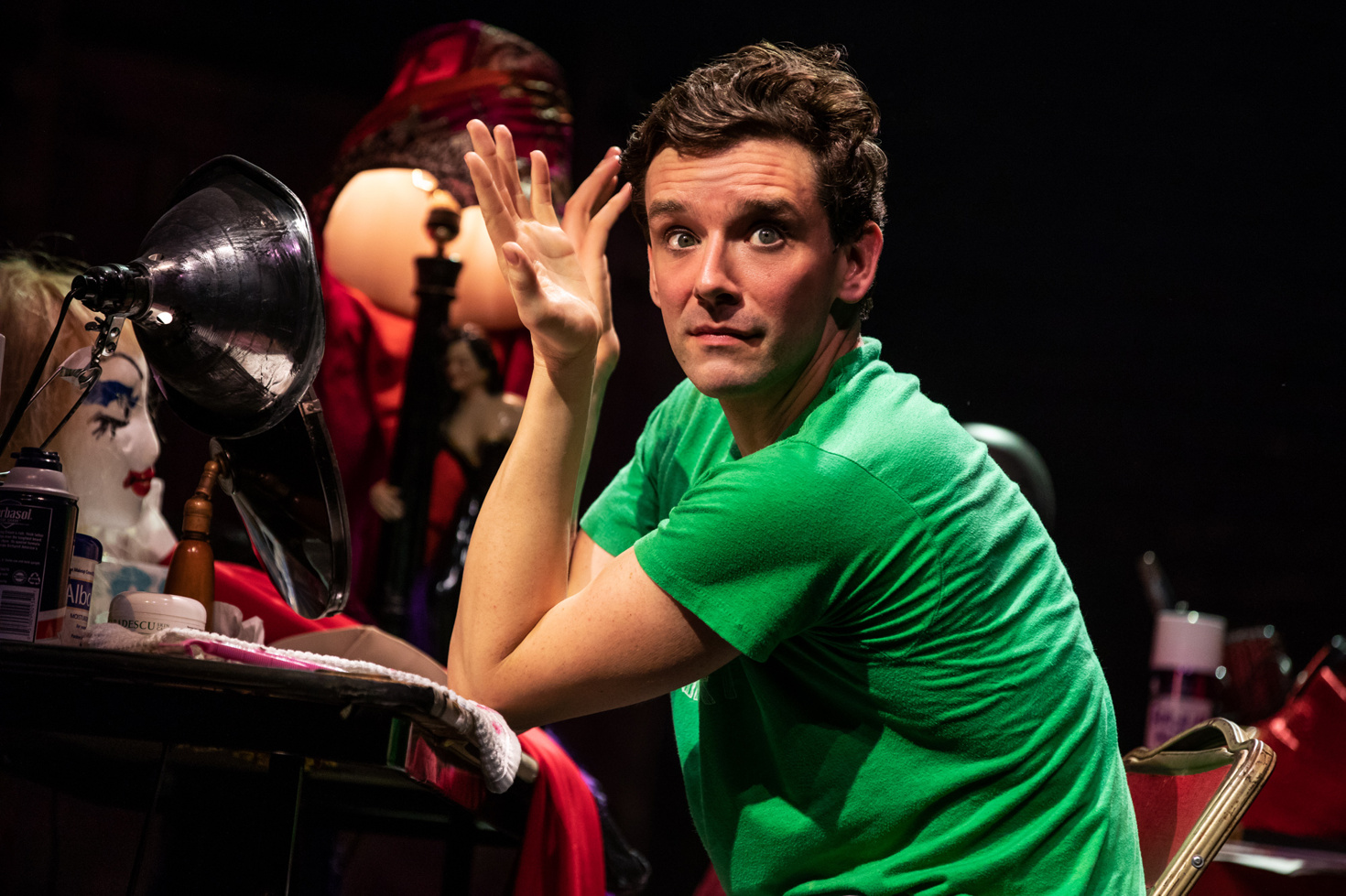
(Photo: Matthew Murphy)
Does the appeal lie in furthering the reach of Torch Song as a play, which is what Michael Urie must have felt when he tackled Arnold just recently in New York?
This is such a wonderful play that it would be a shame for it not to be done, and if the play is worth performing, then someone has to play it. I've heard it levied against the play that because we have gay marriage then the play is somewhat redundant and dated, but to say Torch Song is about gay marriage is like saying that A Doll's House is about divorce: that's an aspect of it, of course, but there's so much more to it than that.
Do you feel a need to match Fierstein's inimitably throaty, husky voice?
The play leaps off the page but it doesn't leap off in Harvey Fierstein's voice to me. Yes, Harvey wrote Arnold and Arnold is him, but he also wrote Ed and Laurel and Ma. This is not just the Harvey Fierstein show; he's a much better writer than that.
But can't you hear the play's creator in his writing?
Sure in that Harvey has left little booby traps in the writing. There are lines where Ed says in his first scene, "Has anyone ever told you that you have a sexy voice? Is it natural or do you have a cold?" That's like a little booby trap where Harvey Fierstein is saying, "Remember me, remember me." But it would be so artificial for me to put on a gravelly voice: his is a completely different rhythm to the way I speak.
Do you at least feel as if you won't need to worry if you get a cold during the run?
[Laughs] Exactly! I always get sick after openings because it can be so knackering [tiring] during previews, so it's good to know I have an excuse built in.
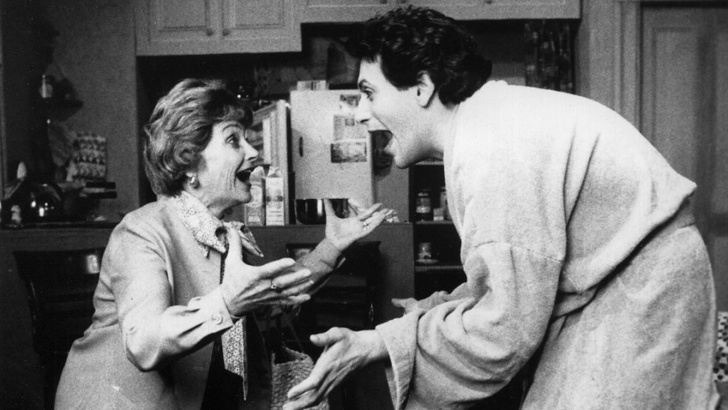
Have you come in contact with Fierstein via social media, or wherever, up to this point?
I haven't and I try in any case to do the minimal amount of social media. My connection with the play began with reading it when I was much younger. It was one of those things that was in my head from years ago and it's exciting that it now feels as if it can speak to us afresh today.
How are you coping with the drag aspects of Arnold's "out there" persona—his onstage alter ego as the wonderfully named Virginia Ham?
[Laughs] And previously known as Kitty Litter and Bang Bang LaDesh! I've only just got the dress made and have been pushing the production team since week one to have something to rehearse in. But what I have to keep reminding everyone is that drag has sort of become mainstream now with RuPaul and everything, which I love by the way, but the fact is, our play is late-'70s, early-'80s when these people were not embraced the way they have gone on to be since. They are outsiders, really, and homophobia is rife.
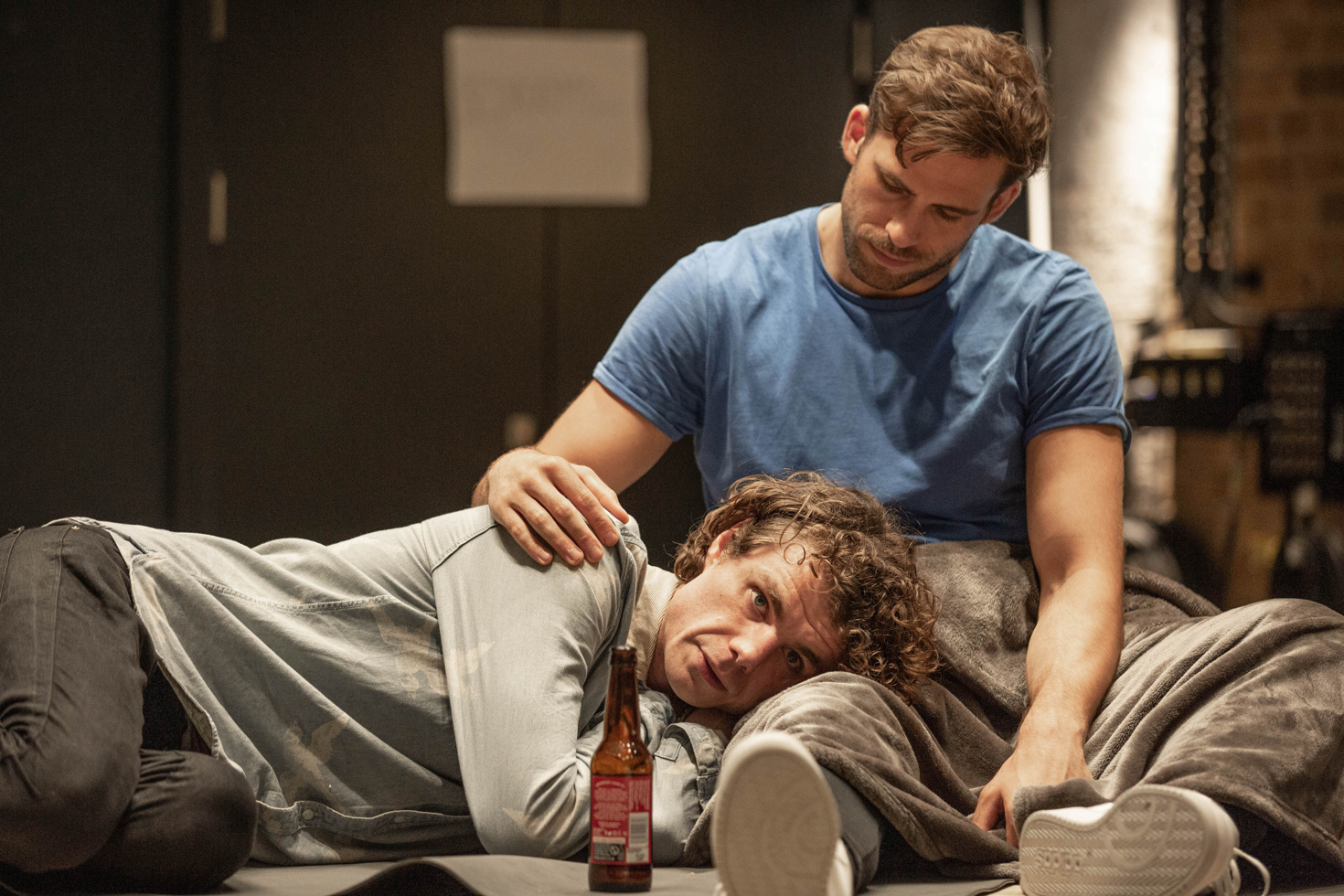
(Photo: Mark Senior)
How does that awareness inform your approach to Arnold?
What I love is that this isn't one of those plays that preaches at you or wags its fingers and says, "Do this and society will be better." At the beginning, Arnold is just happy for a meal and love doesn't really come into it. Love is something he wants but he doesn't feel he deserves. To that extent, the first play [of the trilogy] is really about survival and gradually throughout the plays what he sort of expects of himself grows: you're watching a character's self-worth grow, and I think that's very moving.
Is it a challenge playing someone who so fully wears his heart on his sleeve?
Arnold does do that, but there's an ambiguity to the writing. The line I say the most as Arnold, and that he says over and over, is "I don’t know": Harvey has said that you will find no answers in this play, which really embraces the fact that life and love are confusing as f**k. What I love about Arnold is that he is trying to find his way through this world and to make sense of it.
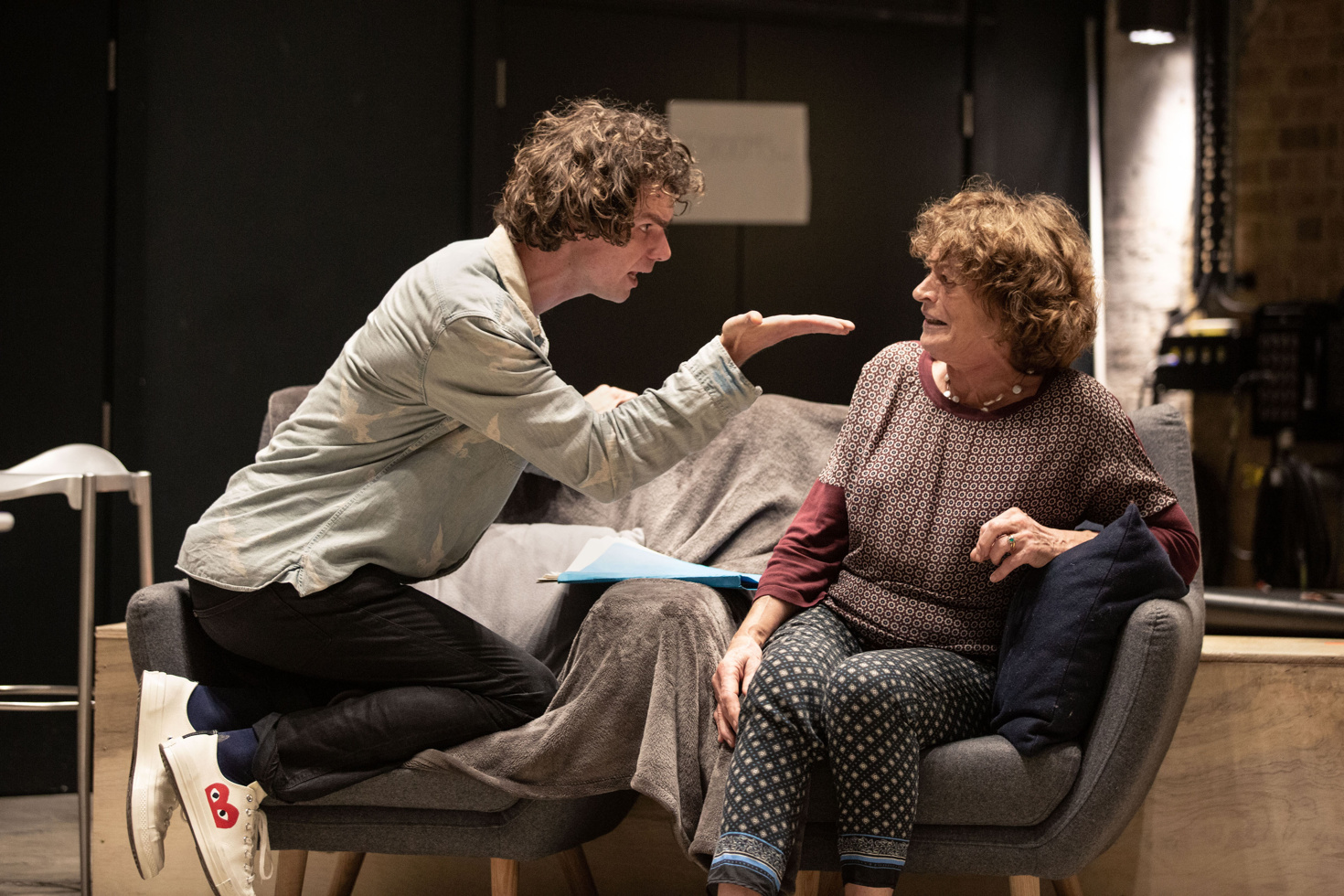
(Photo: Mark Senior)
With reference to an earlier American play you did on the London stage, are you excited for your Olivier Award-winning co-star of Summer and Smoke, Patsy Ferran, making her Broadway debut in the spring in Who's Afraid of Virginia Woolf?
I should be free by then to go see [the production] and am definitely going to go over. It's lovely, really lovely, that Patsy has had this opportunity, and we've said to one another that in thirty years maybe we could play George and Martha: let's do it!
What do you make of having starred in the 2015 short film Stutterer, that went on to win the 2016 Oscar for Best Live Action Short and saw you receive a lovely shout out from the stage?
That was just such a lovely thing, and I'm so glad we won. I wasn't at the ceremony because at the time I was playing Hotspur for the Royal Shakespeare Company on tour in Shanghai and though I could have flown in [to Los Angeles], it would have been a bit too much to just fly in and clap and then head out again.
Your screen stutterer couldn't have been more different from Shakespeare's garrulous Hotspur.
There I was on stage playing a character who is famous for never shutting up. It did tickle me that those things were happening simultaneously.
Do you find any of Arnold's garrulousness, or perhaps his wit, rubbing off on you?
I think stuff like that does happen when a part starts soaking in. But I only wish I were as witty as Arnold or Harvey Fierstein. I don't think many people are, but I wish that was the case, I really do.
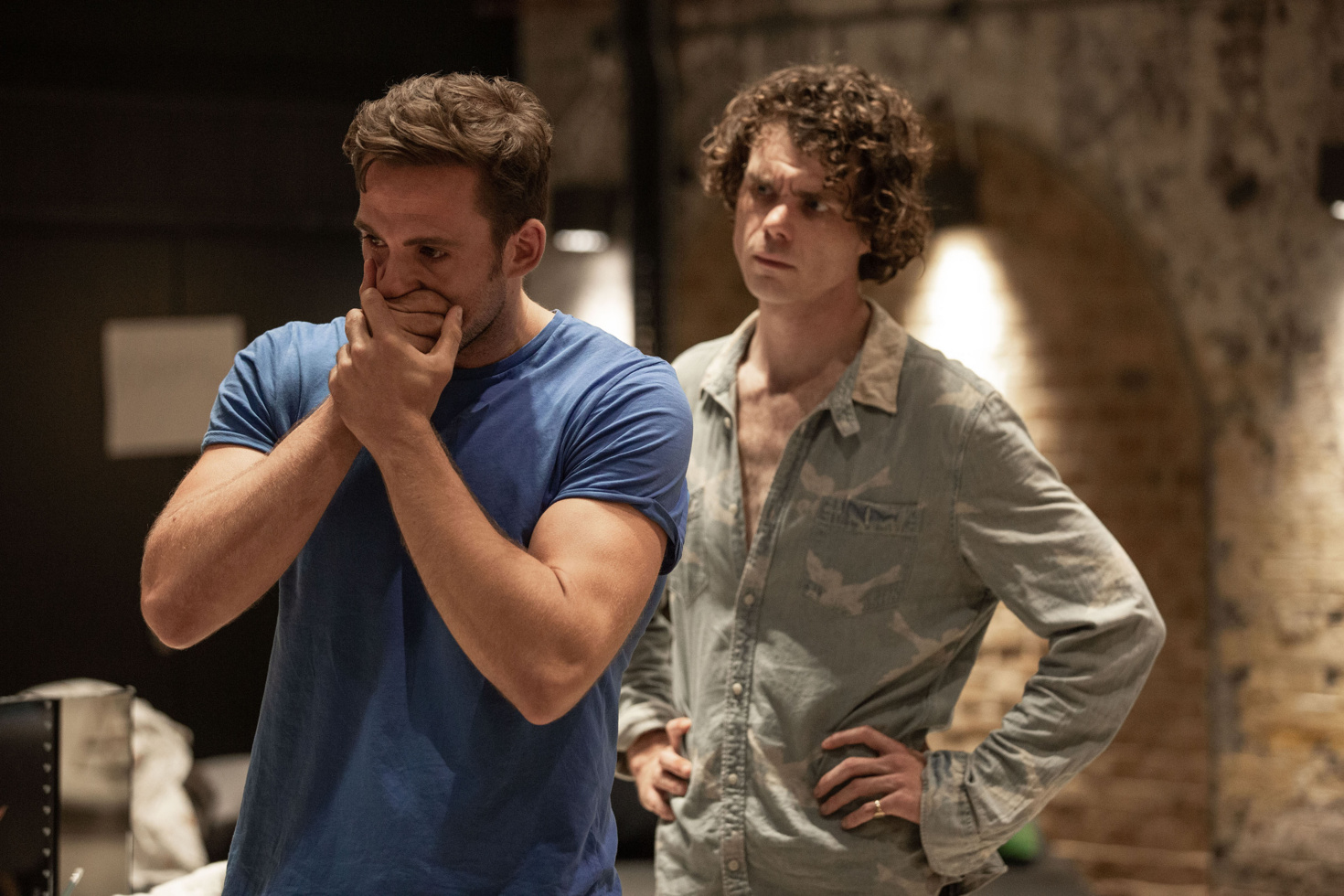
(Photo: Mark Senior)